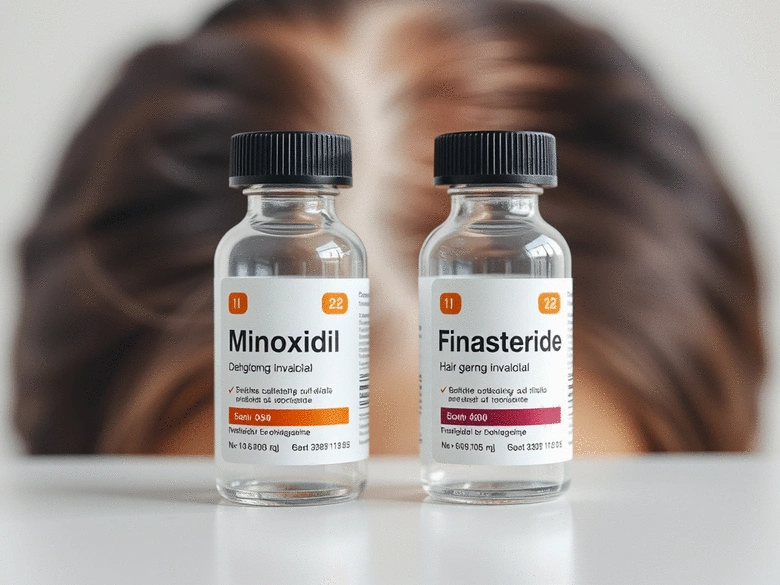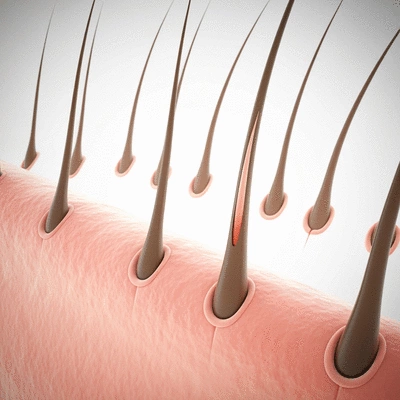Androgenetic Alopecia Prevalence
50+ Million Men in the US experience hair loss.
30+ Million Women in the US experience hair loss.
80% of Men experience some hair loss by age 70.
Statistics reveal that hair loss affects over 50 million men and 30 million women in the U.S. alone. Understanding the contributing factors and treatment options is essential for anyone navigating this common issue.
Understanding the commonality of hair loss and the primary FDA-approved treatments.
50+ Million Men in the US experience hair loss.
30+ Million Women in the US experience hair loss.
80% of Men experience some hair loss by age 70.
Type: Topical treatment
Mechanism: Stimulates hair growth
Gender: Suitable for both men and women
Type: Oral medication
Mechanism: Inhibits hormone responsible for hair loss
Gender: Primarily effective in men
Have you ever wondered what really causes hair loss? It can be a perplexing issue for many, and the reasons can be quite complex. Understanding the different factors that contribute to hair loss is essential for managing it effectively. At What Causes Hair Loss, we’re dedicated to shedding light on these causes, helping you navigate your hair health journey with confidence!
Several key factors play a role in hair loss, including:
By identifying these factors, you can better understand your own hair loss and explore the right treatment options tailored to your needs.
Let’s delve deeper into some of these causes. Genetics is one of the most significant contributors, particularly in cases of androgenetic alopecia, commonly known as male or female pattern baldness. If you have family members who have faced hair loss, it's wise to consider this as a crucial factor in your hair health.
An equally important factor is hormonal changes, which can occur due to various reasons, such as pregnancy, menopause, or thyroid disorders. These fluctuations can trigger hair loss, leading to thinning or shedding that many people find distressing.
Now that we have a grasp of the causes, let’s explore FDA-approved treatments that can help combat hair loss. Two of the most recognized options are Minoxidil and Finasteride. Each works differently, targeting various aspects of hair loss.
Both treatments have shown promise in slowing hair loss and promoting regrowth, but the effectiveness can vary based on individual circumstances. Consulting a specialist can help you determine the best path forward based on your specific situation!
Did you know that androgenetic alopecia affects a significant portion of the population? It's estimated that over 50 million men and 30 million women in the United States alone experience some degree of hair loss. These statistics highlight just how common this issue is! Studies published in journals like BJD further underscore the prevalence of patterned hair loss.
Furthermore, studies indicate that approximately 80% of men will experience some form of hair loss by the age of 70. For women, it's a bit more nuanced, with many facing thinning hair post-menopause. This widespread occurrence emphasizes the importance of understanding your hair loss and exploring viable treatment options.
Did you know that combining Minoxidil with a healthy lifestyle can enhance your hair growth results? Maintaining a balanced diet rich in vitamins such as Biotin, Zinc, and Vitamin D can significantly support your hair health. Additionally, regular exercise helps improve blood circulation to the scalp, which may promote hair growth.
When it comes to managing hair loss, understanding your options is crucial. Both Minoxidil and Finasteride have unique benefits and potential drawbacks. To help you make an informed decision, I’ve put together a simple guide to navigate these treatments. Let's take a closer look at how to choose the right solution for your hair health!
By taking these factors into account, you’ll be better equipped to decide which treatment aligns with your needs and expectations. Remember, this journey is personal, and there’s no one-size-fits-all solution!
As a dermatologist, I can't stress enough how vital it is to consult professionals when navigating hair loss treatments. Each individual's case is unique, and what works for one person might not work for another. A thorough evaluation will help identify the root cause of your hair loss, ensuring you receive a tailored treatment plan. Research from sources like JAMA Dermatology highlights the importance of evidence-based approaches in hair loss treatment.
Additionally, professional guidance can help you understand the timeline for results. Hair growth typically takes time, and having realistic expectations is key to staying motivated. So, don’t hesitate to reach out to your healthcare provider for advice tailored to your situation!
Hearing from others who have faced similar challenges can be incredibly empowering. Patient experiences can provide insights into how different treatments work in real-life scenarios. At What Causes Hair Loss, we encourage our readers to share their stories—whether it’s about using Minoxidil, Finasteride, or even alternative therapies.
By sharing experiences, we can foster a supportive community that empowers individuals to take control of their hair health. If you have a story to tell, I invite you to join the conversation!
Here are some common questions about hair loss, its causes, and treatments:
Every hair loss journey is unique, and your insights could make a difference for someone else. Sharing your experience can help others feel less alone in their struggles!
Have you used Minoxidil or Finasteride? I'd love to hear how these treatments have impacted your hair health. Whether it’s a success story or hurdles you’ve faced, your experiences are valuable.
Feel free to comment below, as your insights could inspire and guide others on their own hair loss journeys!
If you're looking for more information about hair loss treatments and their effectiveness, here are some trustworthy resources:
Knowledge is power! By seeking out credible resources, you can equip yourself to make informed decisions about your hair health.
Here is a quick recap of the important points discussed in the article:
At What Causes Hair Loss, we unravel the complexities of hair loss with science-backed insights, empowering you with dermatologist-reviewed guides and effective solutions for your hair health journey.
Dermatologist-Reviewed Insights


